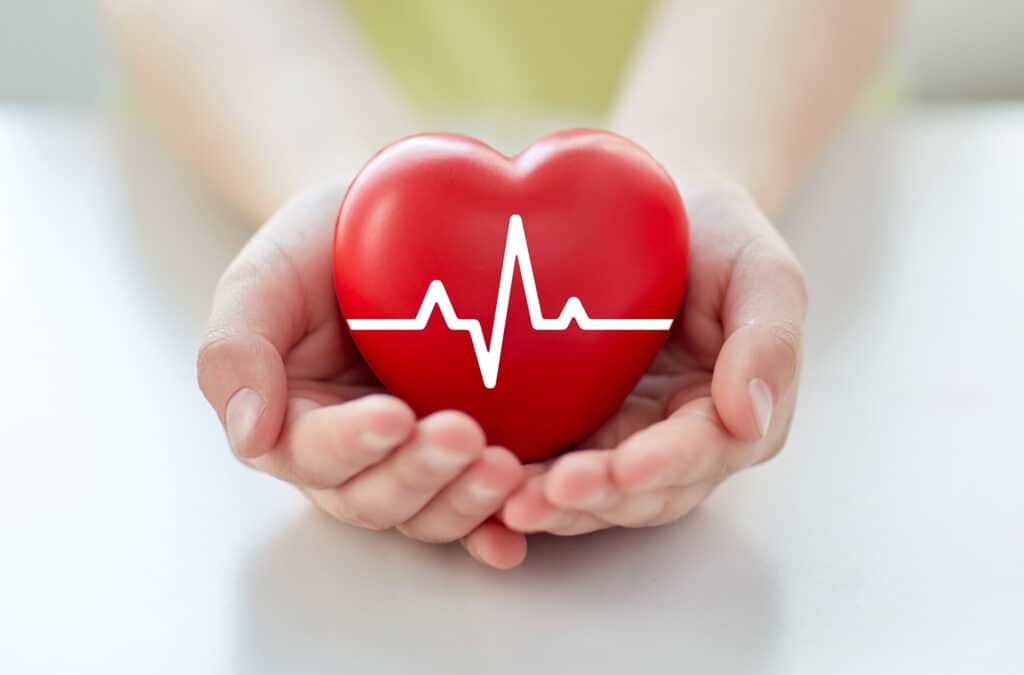As a senior citizen, you always have to be conscious of your health, especially when the likelihood of heart disease increases to 86% after the age of 80. Luckily, there are reminders like February’s American Heart Month to help you get back on track and become aware of your daily routine. Get started celebrating all that your heart does for you by using these tips for senior living with your heart in mind.
What is American Heart Month?
If your home is in a senior living community then you will most likely see posters for American Heart Month. This is the time of year that has been celebrated since 1963 as a way to promote cardiovascular health. The month is filled with strategies for strengthening one of the most important organs in your body because it is also one of the most vulnerable. Heart disease is the most common ailment in all types of people but especially seniors. It is the number one cause of death in America so it should be taken seriously.
Causes of Heart Disease
A healthy heart pumps blood and oxygen throughout the body using a pathway of vessels and arteries. So, if one part of this intricate system is blocked or defective then the entire body suffers. This can lead to heart disease, otherwise called cardiovascular disease. There are several forms of heart disease, but the most common one is coronary artery disease (CAD). When the arteries get clogged from excess plaque from cholesterol build up CAD occurs. This can lead to a heart attack or stroke as well as abnormal heartbeats and even heart failure.
Some of the causes of heart disease include:
- Obesity
- High Blood Pressure
- Diabetes
- Lack of Exercise
- Processed Food
- Smoking
- Drinking Excess Alcohol
It is never too late to improve your heart health, but seniors should be particularly careful and aware of prevention strategies.
Heart Disease Symptoms
Prevention is one method of staying healthy, but you should also know the symptoms of heart disease to get proper and quick treatment.
Some signs of heart disease include:
- Chest Pains or Pressure in the Chest
- Shortest of Breath
- Nausea
- Irregular Heart Beat
- Lethargy
- Upper Body Pain
- Abnormal Sweating
If you have any of these symptoms, then you should seek medical attention to get your heart checked.
How to Keep Your Heart Healthy
Knowing the signs of heart disease is just one path toward optimal senior health, you also need to know how to get healthy or maintain your current health. Here are a few tips to follow with respect to your heart during American Heart Month and beyond.
Eat Healthy Foods
Avoiding foods with high cholesterol to promote good cardiovascular health. It will reduce the amount of plaque buildup in your arteries. Eating fresh rather than processed food full of synthetic ingredients will also keep your heart clear of blockages. Processed food is harder to digest and includes large amounts of sugar and sodium, which raises your blood pressure. A variety of healthy food that is high in vitamins and good fats will improve your immune system and keep your heart healthy. This includes fruit and vegetables, whole grains, lean meats, and nuts.
Monitor Your Blood Pressure
If you have high blood pressure, then you should check it every day to see what foods increase it. Speak to your doctor if your blood pressure goes above normal. By monitoring your blood pressure, you can avoid a stroke or heart attack from hypertension.
Stay a Healthy Weight
Obesity is a major factor in the cause of heart disease, so you should plan to lose weight or maintain a current healthy weight. Being too thin can also have negative health effects since you won’t have enough fat reserves to help you recover from an illness. A weak body also means your heart may not be strong.
Exercise Every Day
Exercising daily will help keep the weight off and build muscles for strength. And your heart is a very important muscle. Exercise contributes to lower blood pressure and better circulation. Staying active can also help reduce your chances of dementia. Create an exercise routine after speaking with your doctor to ensure it suits your body and accommodates any medical conditions.
Reduce Alcohol Consumption
Too much alcohol leads to high blood pressure, which puts you at risk for a heart attack and stroke. Alcohol can also lead to a condition called cardiomyopathy that affects the muscle in the heart. It can create irregular heartbeats or raise your heart rate as well. It is recommended by the U.S. Dietary Guidelines of America that men should limit alcohol consumption to two a day and women should have no more than one alcoholic drink a day.
Manage Stress Levels
High stress levels release cortisol into the blood, which puts your body in flight or fight mode. This raises your blood pressure and makes it difficult to lose weight. Stress may also lead to poor diet choices. Find senior-friendly, stress-reducing activities like walking in nature or meditation to manage stress and create a healthier heart.
Improve Sleep Patterns
Getting uninterrupted sleep is essential for overall well-being. It allows your cells to heal and improves immunity while resetting your metabolism. Proper sleep will also reduce irritability, lower stress levels, and create emotional balance, which all help you have a healthy heart.
Staying Heart Health at Your Senior Living Community
If you or your loved one lives in a senior living community then you can take advantage of the healthy activities offered there. Take part in a group exercise or choose from a variety of fresh food from the dining hall.
Considering a senior living community? Start by contacting Inspired Living to get your questions answered.




